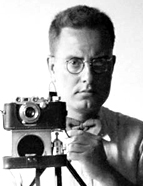

After this lengthy introduction to Orlando Ribeiro’s education and to his first main relevant accomplishments, both from an organisational and scientific perspective, the delicate issue of the specific nature of his intellectual and professional orientation should now be addressed. Was Orlando Ribeiro a mere geographer? To what extent was he not also a historian? An ethnologist? Or, to use a more comprehensive term, a humanist? His basic education clearly favoured History and Literature; but his strongest intellectual encouragement did not stem thereof, but rather, as noted above, from chance acquaintances or his own pursuit of highly diverse figures who piqued his curiosity. Other distinctions must be made when considering Orlando Ribeiro’s extremely vast scientific work (Ana Amaral and Ilídio Amaral, Bibliografia Científica de Orlando Ribeiro [Scientific Bibliography of Orlando Ribeiro], 1984; Suzanne Daveau, Segunda Parte [Part Two] (1981-1995), Finisterra, 61, 1996, p. 81-97). It may first be noted that he was as interested in the various thematic aspects addressed in the vast scales of the Mundo Português [Portuguese World] or in the Zona Intertropical [Intertropical Zone] as he was in monograph-type studies, on any scale, ranging from that of a village (Castro Laboreiro), a town (Sertã), or a city (Lisbon, Venice or Toledo), to a more or less defined region (the Arrábida mountain range, Central Portugal) or an Island (Madeira, Fogo) or even immense territories such as Brazil and Angola. Nevertheless, the underlying theme of the numerous interpretation attempts that Orlando Ribeiro applied to the diversified fragments of the earth’s surface appears to have always been similar: he tried to understand the relations by linking Man to Earth at the very time he was studying them, that is, in what for him constituted the Present. In fact, the brief moment between Past and Future is the only moment open to the researcher’s direct observation – it is what allows him to observe and better understand the connections between Environment and Society, without neglecting the marks left by foregone times, no matter how remote and semi-erased.
I am therefore of the opinion that Orlando Ribeiro cannot be considered a true historian, that is, a researcher concerned, above all, with the reconstruction of humanity’s bygone days. It was essentially the present world he wished to describe and understand, in its unstable fragility – but without failing to consider what he managed to learn of past times, since they are still responsible for some of the human characteristics and activities of the present, and which still leave an imprint on today’s landscape. Orlando Ribeiro was a geographer, or rather a humanist who always attributed major importance to both historical and natural features – to Time and Space – to better understand the meaning of the presence of “Man on Earth”.
